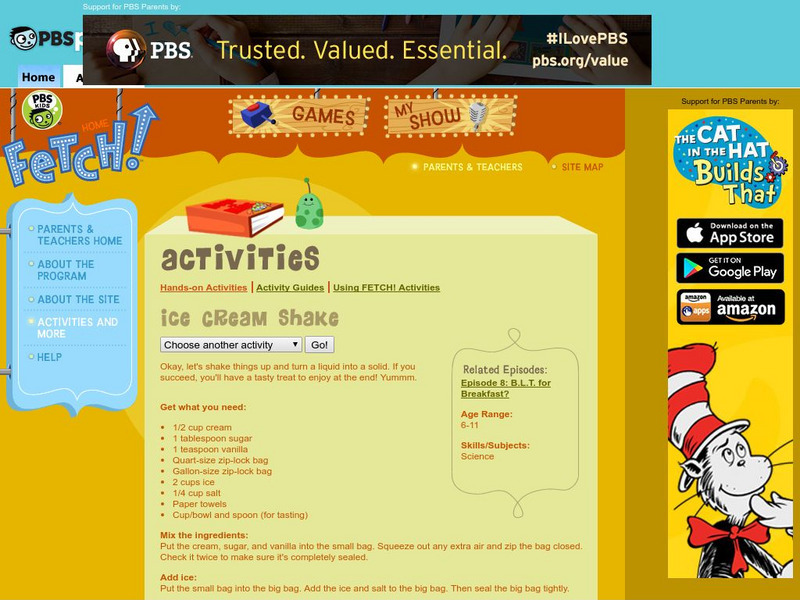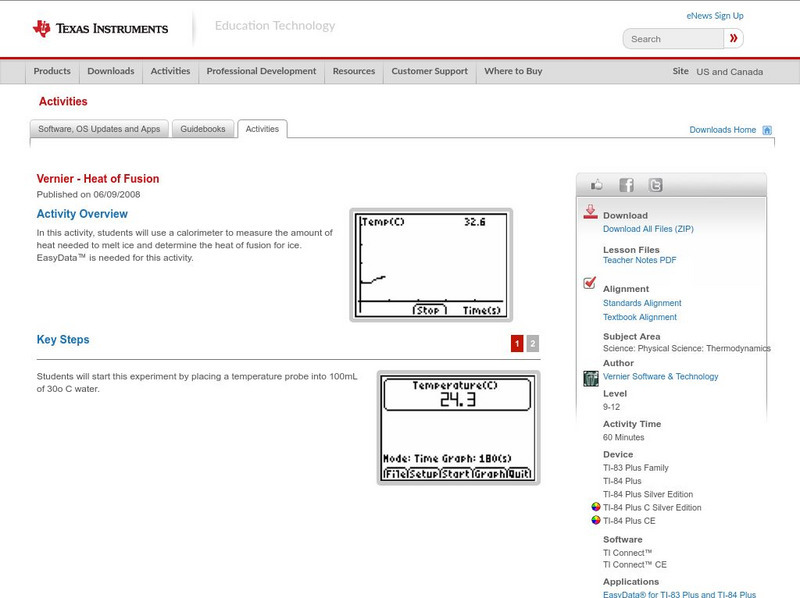DiscoverE
Ice Cream Special
We all scream for ice cream! Individuals create home-made ice cream in the classroom. This is a delicious way to show a real-world application of the freezing point depression to your class.
Curated OER
Ice Eggs
Students melt colored ice cubes which are created from a funnel, balloons, water, and food coloring. In this ice lesson plan, students put food coloring into water in a balloon, freeze it, and see how the food coloring ended up making...
NOAA
Please Pass the Salt
Salinity is the focus of two experimenters that work to answer the question, How does salt change the physical properties of water? Super scientists compare the freezing rate of salt and fresh water, combine the two waters to...
Carnegie Mellon University
Introduction to Climate
Begin a full lesson on climate change by demonstrating how carbon dioxide gas contributes to increased temperatures. Be aware that pressure inside the antacid-containing bottle in Activity 2 may cause the lid to fly off; keep viewers at...
Curated OER
Fun in the Sun
Students freeze colored water. In this art lesson, students take the blocks of ice out of the freezer, put the blocks into a small pool and watch the ice melt.
PBS
The Cat in the Hat Activity Exploring Weather
Observe different types of weather right in your classroom! Here, pupils look at clouds, rain, snow, wind, and hot and cold temperatures, and observe these weather patterns at school. They keep track of their observations in a worksheet...
PBS
Pbs Teachers: Ice Cream Shake
Investigate states of matter while making ice cream. Explore how to turn a liquid into a solid by removing heat energy.
Texas Instruments
Texas Instruments: How Low Can You Go?
In this activity, Students can use an EasyTemp temperature probe to determine the normal melting temperature of ice. They will then study how the addition of salt to the melting ice affects its melting temperature. They will finally...
Texas Instruments
Texas Instruments: Heat of Fusion
In this activity, students can use a calorimeter to measure the amount of heat needed to melt ice and determine the heat of fusion for ice. EasyData is needed for this activity.
PBS
Pbs Teachers: Rising Ice Experiment
Observe how ice and salt crystals interact by using salt to help adhere a string to the top of an ice cube in a glass of water, then lift the cube out of the water.
University of Maryland
University of Maryland: Regelation: Ice Under Pressure
A page from the University of Maryland Physics Lecture Demonstration Facility. Provides directions for a teacher demonstration on the phenomenon of regelation. Shows apparatus and set-up; provides suggestions. Easily adaptable as a...










